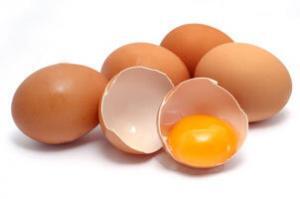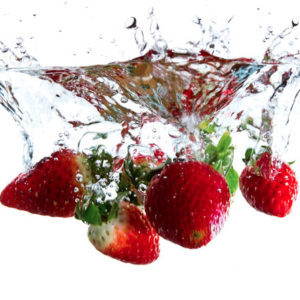
Improving Your Memory Through Nutrition

Feeling forgetful? Here are some nutrition strategies to get those memory cells working.
Eggs-ceptional memory!
Choline is vital in making acetylcholine, the memory neurotransmitter in our brains. Choline also helps to form important building material for nerve cells and the receptor sites for neurotransmitters. Eggs are excellent source of choline and is best to lightly boil, hard boil or gently scramble. They are cheap and quick and easy to prepare, which is great for busy families.
Fat-tastic for memory!
Phosphatidylserine is the “memory molecule” its role is to help the brain cells communicate as it is a vital part of the structure of the brains receptor sites. 60% of our brains are made of fats which is why it is important to ensure that we get enough of the good fats in our diet. Your brain and nervous system depend on the essential fats. Phospholipids are a type of fat that can be made in our bodies but getting it from food sources will boost your memory abilities more. These can be found in soy beans and liver and organ meats.
Eat Your Fish!
Omega 3’s and omega 6’s cannot be made in the body which is why they are called essential fats. There are billions of nerve cells that are used to transport messages around the brain and nervous system. The myelin sheath which surrounds the nerve and receptor sites helps the messages to be transported efficiently from one nerve to the next and this sheath is made up of approximately 75% fat, which is again why it is so important to get enough omega 3’s and 6’s in your diet. Supplementation can often be needed, as well.
Foods high in memory nutrients (choline, phospatidylserine, phospholipids and essential fatty acids)
- Flax seed, hemp seeds, sesame seeds and pumpkin seeds
- Organic or wild Salmon, mackerel, herring, sardines, anchovies, tuna
- Evening primrose oil, borage oil, blackcurrant seed oil
 |  | |
| Raw Memory Balls These are a great quick and easy snack for the whole family to enjoy. They are high in omega 3 and 6, high in fibre and protein and are gluten and dairy free! Ingredients:
Directions:
| The Health Benefits of Eggs
|
Providing nutritional services for the Toronto/GTA, Hamilton, Barrie, Waterloo/Kitchener, Peterborough, London, Niagara and Ottawa regions.
For more information please go to:
- Website: www.korunutrition.com
- Phone: 1855 386 5678
- Fax: 1855 399 4376
- Supplement dispensary: korunutrition.shophealthwave.com
Our head office address is: 129 Glenforest Road, Toronto, Ontario, M4N 2A1








